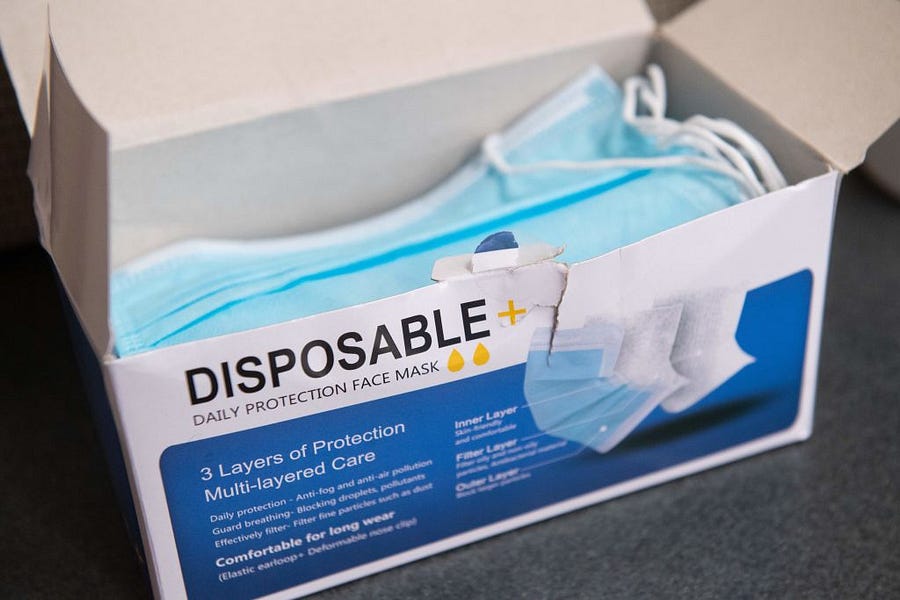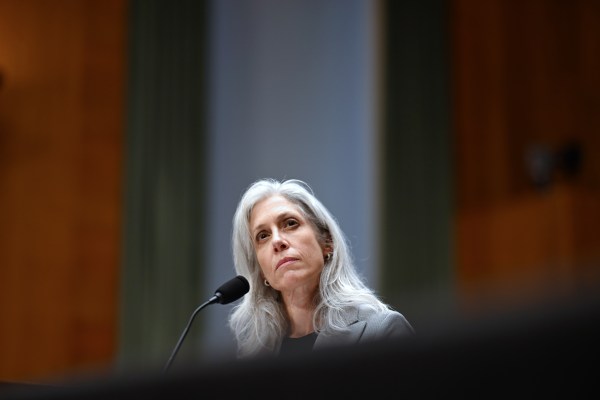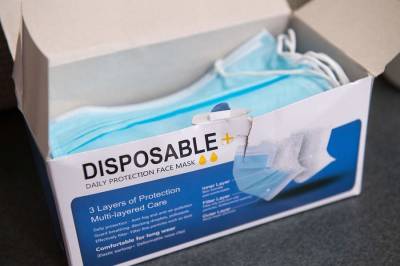An article from The Defender suggests that masks may be linked to microplastics found in lung tissue. The headline of the article reads: “Inhaled Microplastics Found in Lung Tissue—Are Face Masks Contributing to the Problem?”
The Defender is a news website of the Children’s Health Defense, a non-profit that describes itself as seeking “to end childhood health epidemics by working aggressively to eliminate harmful exposures, hold those responsible accountable, and to establish safeguards to prevent future harm.”
The Children’s Health Defense and its founder, Robert Kennedy Jr., have a history of promoting vaccine misinformation, such as the false claims that vaccines, as well as environmental toxins and pesticides, are linked to an increase in childhood chronic conditions such autism, asthma, and, diabetes.
Kennedy is a known anti-vaccine activist. As we have reported before, in December 2020, Kennedy’s niece, Dr. Kerry Kennedy Meltzer wrote an op-ed for the New York Times titled: “Vaccines Are Safe, No Matter What Robert Kennedy Jr. Says.” Meltzer described her uncle as “a noted anti-vaccination activist,” and said “when it comes to vaccines, he is wrong.” Furthermore, as the BBC reported, in February 2021 Instagram banned Kennedy from the platform for sharing COVID-19 misinformation.
The Defender article in question is written by Colleen Huber, a naturopath in Tempe, Arizona, and owner of the Nature Works Best Cancer Clinic, which offers alternative cancer treatments such as baking soda treatments and Vitamin C treatments, among others. The clinic’s website also notes that: “Medical doctors neither supervise us, nor take direction from us, because we are an independent clinic of Naturopathic Medical Doctors (NMDs).”
In an email to The Dispatch Fact Check, Robert Garry, a Tulane University virologist, addressed this most recent article from The Defender, calling it “misleading,” and noting “there's no evidence that wearing a surgical mask increases the amount of microplastics in the lungs.”
In the article, Huber cites a July 2022 study titled: “Detection of microplastics in human lung tissue using μFTIR spectroscopy,” that, as Garry points out, never actually mentions surgical masks. Instead, the study, Garry noted “simply documents that people have a lot of different kinds of microplastics in their lungs. Males seem to have more than females.”
Huber writes one sentence that acknowledges that the study might have nothing to do with masks, but she still implies a strong connection between masks and microplastics.
After noting the results of the study, which states that people have different types of microplastics in their lungs, Huber asks: “What does this have to do with masks?” In response, Huber writes: “Possibly nothing,” but then goes on to explain why there might still very well be a link between microplastics and masks:
“However, the disposable surgical masks that now decorate the world’s beaches, rivers and wildlands after having decorated billions of human faces happen to also be made of polystyrene and polyethylene compounds.”
According to Garry, though, masks might actually reduce microplastics in the lungs. “Since the main source of microplastics is the air we breathe,” explained Garry, “it's very possible that the filtration afforded by masks reduces the amount of microplastic in the lungs.”
If you have a claim you would like to see us fact check, please send us an email at factcheck@thedispatch.com. If you would like to suggest a correction to this piece or any other Dispatch article, please email corrections@thedispatch.com.







Please note that we at The Dispatch hold ourselves, our work, and our commenters to a higher standard than other places on the internet. We welcome comments that foster genuine debate or discussion—including comments critical of us or our work—but responses that include ad hominem attacks on fellow Dispatch members or are intended to stoke fear and anger may be moderated.
With your membership, you only have the ability to comment on The Morning Dispatch articles. Consider upgrading to join the conversation everywhere.